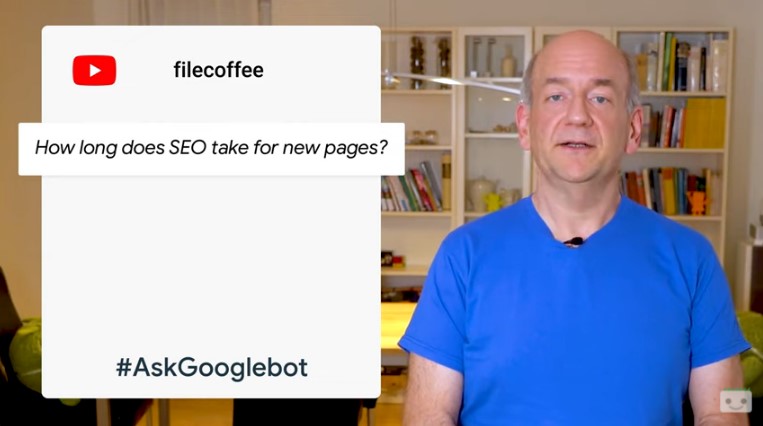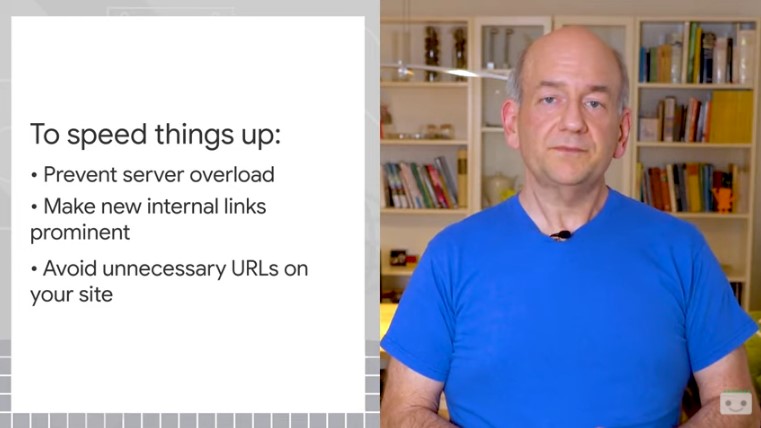Google talks about SEO times to index a new page
Several hours, or even a few weeks: in practice, the answer is “it depends”, as in the most classic cases when John Mueller is the one speaking (who in fact ironizes a lot about that has now become a cliché). Let’s go back to talk about SEO times, and to be precise about the time it takes for a new page or updated content to be scanned and correctly indexed by Google, with some interesting indications to try to speed up the process.
How long does SEO take for new pages
To shed light on this theme is an episode of Askgooglebot, the series on Youtube with which Google answers questions posed by users through various social channels; on the occasion, it is filecoffee right from Youtube to ask “How long does SEO need for new pages?”.
As always, Google’s official position is expressed by John Mueller (presented here as a member of the Google’s Search Relations team), who defines the topic as “complex” and jokes that he would prefer to “raise his hands up and declare it depends, and that’s all”.
More seriously, then, he explains that the issue affects two aspects, namely the technical part of indexing and what site owners and SEO can do to speed up the process.
Two disclaimers on indexing
Before going into more detail on the answer, Mueller is keen to clarify two crucial aspects regarding indexing: first, “there is no guarantee that Google will index a particular page”, and indeed most search engines do not index many of the content on the web.
The reasons can be varied – for example, there are “a lot of duplicate content on the web that don’t need to be indexed”, as well as there are “a lot of content that will hardly ever be seen by users” or even Urls that have many URL parameters that might not add enough value and so on – but they are common by the fact that “it’s not useful” to index these poor quality content or nothing.
The other disclaimer is that, “even when something is indexed, it is not necessarily shown to users and, over time, can exit the index”: that is, the difference between indexing and positioning.
Times of indexing
When a new page is published on a website, says Mueller, to be indexed “it can take several hours to several weeks“; on average “most good content is collected and indexed within a week or so.”while news sites can be indexed by Google in minutes.
Sometimes, however, there are situations that delay times, such as technical problems on the web or Google’s “busy with other things” systems (indexing more important sites).
How to speed up indexing
If these are the standard times, there are however some interventions and best practices that site owners and SEO can apply to speed up scanning and indexing.
- To prevent a server overload
Mueller invites you to make the server faster and able to handle a reasonable number of requests in a timely manner, because “when your server slows down, even search engines tend to slow down”.
- Using internal linking well
It is appropriate to link to the new pages within the website prominently, sometimes even directly from the home page, because “the easier our systems can recognize what you think is an important page, the easier it will be for them to prioritize its crawling and indexing”.
For example, he continues, if we have an e-commerce site we can help Google’s systems find internal links to new products through the home page, so you don’t have to force the crawler to browse “through different levels of categories to find them”.
- Avoiding unnecessary URLs
The site should never be filled with unnecessary Urls, such as endless calendar Urls and filters for category pages. In Mueller’s own words, “whether it’s a calendar of events dating back to the dawn of civilization, or pages of shopping categories that allow you to filter and sort by any possible combination, search engines can get bogged down trying to understand all these Urls, and may lose the Urls you’re interested in”.
The advice for those who own or manage dynamic sites such as those described is “working to keep the functionality open for users, while avoiding that crawlers get lost”.
- Using URL introduction methods
A central point to speed up scanning and indexing times is making it easy for Google’s systems to “recognize that your new pages are important“. To do so, we can use the URL presentation methods we have available, such as sitemaps (to automatically inform Google of a list of new pages) or URL Inspection tool in Search Console for individual Urls.
- Ensuring the overall quality of the site la qualità complessiva del sito
The final advice calls into question that noun that many times we meet when we talk about SEO, quality: in this case, Mueller reminds us that it is important to ensure and maintain “the overall quality of the site“, also because “the easier it is for our systems to recognize that your website is critical for web users, the better they can prioritize the site for crawling and indexing”.
What the Googler suggests here is that in the ideal process the search engine gives priority to indexing (and then also in the ranking) the pages with quality content compared to the pages of sites of lower quality, but we know that it is not always so.
Final tips on SEO times and how to speed them up
Being able to index and quickly and efficiently place new content in Google Search is a common goal, and this video summarizes the basics of how Google displays new pages and some of the obstacles it may encounter (and therefore may slow down the process).
What is important to know and keep in mind is that it is not possible to indicate a precise time frame to define what is needed to achieve results with the SEO, but at the same time there are a few ways to ensure that indexing and subsequent rankings do not take longer than they should.
As Mueller says, we must “make the site fantastic as a whole”, remembering that “forcing something to be indexed does not mean that Google will show it prominently in the Search, nor that it will remain indexed forever”.



